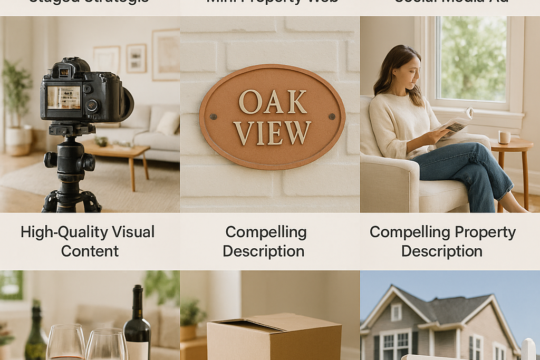The commercial real estate (CRE) industry is experiencing a significant shift, driven by evolving technology, changing client expectations, and broader economic influences. Brokers are no longer transaction facilitators; they become strategic advisors equipped with data-driven insights and advanced tools. Innovations such as artificial intelligence, virtual property tours, and predictive analytics enable brokers to better understand market dynamics and offer more precise recommendations. This transformation allows professionals to add more value throughout the property acquisition, leasing, and investment process.
At the same time, the role of commercial real estate brokers is being influenced by a more informed and engaged client base. Investors and property seekers, including Michigan commercial property buyers, increasingly rely on brokers who can provide tailored strategies, transparency, and long-term market perspectives. These clients expect a higher level of service and expertise, pushing brokers to sharpen their skills in negotiation, market analysis, and regulatory knowledge. Additionally, sustainability and flexible workspace trends are prompting brokers to consider broader social and environmental factors in their recommendations. As these trends continue to unfold, the future of CRE brokerage points toward a more collaborative, insight-driven, and client-centered approach that benefits all stakeholders in the evolving real estate landscape.
Table of Contents
Technology Integration
Rapid technological advancements are fundamentally changing how commercial real estate brokers operate. Artificial intelligence (AI) and machine learning are now essential tools for streamlining market research, tenant matching, and investment forecasting. By analyzing vast market data sets, AI enhances predictive analytics and simplifies property valuations. Meanwhile, virtual reality (VR) is revolutionizing property tours, providing immersive remote experiences for clients unable to visit sites in person. These technologies allow brokers to offer near real-time updates on market conditions and property status, enhancing their advisory role and deepening client trust.
Blockchain technology is also emerging as a critical component in modern CRE transactions, offering unprecedented transparency and security. Using smart contracts, transactions can be executed faster and are almost impossible to tamper with, reducing costs and administrative hassles. This is particularly valuable as deals become more complex, requiring airtight documentation and timely execution. Staying on top of these advancements enables brokers to add genuine value, shortening the sales cycle, reducing risks, and setting themselves apart in a crowded market.
Sustainability and ESG Initiatives
Environmental, Social, and Governance (ESG) standards are central to creating real estate value. Investors and tenants increasingly prioritize sustainable developments over traditional ones, demanding green-certified buildings and energy-efficient solutions. Properties with high-performance HVAC systems, advanced insulation, LED lighting, and LEED certification consistently attract higher values and more tenant interest. For brokers, the ability to educate clients on these topics—such as the benefits of low-carbon construction, rainwater harvesting, and solar energy—demonstrates expertise and a genuine alignment with client and market values.
The shift toward ESG is also driven by regulatory developments. Stricter government requirements around energy consumption, waste reduction, and carbon reporting have been adopted in many regions. As these rules become more complex, brokers help clients navigate compliance, assisting in site selection, due diligence, and ongoing operations so that owners and tenants can avoid costly penalties while maintaining an attractive reputation. Understanding local, state, and international green policies has become a necessity for brokers aiming to support clients from acquisition through long-term ownership.
Flexible Workspaces and Remote Work
The global shift toward remote and hybrid working models profoundly affects the commercial property landscape. With many businesses reconsidering how much office space they need and how it’s configured, demand for flexible workspaces has soared. Co-working environments, shared meeting rooms, and modular office layouts are now the preferred choice for organizations, whether startups or established enterprises. For brokers, this trend means building portfolios emphasizing versatile lease terms, short-term options, and spaces that can be reconfigured quickly to suit changing workforce demands.
Organizations are drawn to office innovations that foster teamwork while also ensuring personal comfort and safety. Features like touchless entry, high-speed internet, and wellness-focused amenities have grown in importance, making it crucial for brokers to keep up with these preferences. Leading commercial property advisers cite workplace flexibility as a critical factor in tenant decisions now and into the foreseeable future. Brokers who anticipate clients’ operational needs and offer turnkey solutions will stand out as trusted advisors in this changed business environment.
Market Specialization
In today’s high-stakes CRE environment, brokers who commit to specialization—focusing on logistics hubs, medical offices, technology campuses, or mixed-use developments—gain a clear competitive advantage. Expertise in a niche market allows brokers to deliver more relevant data, sharper analyses, and targeted marketing for their specific client base. This in-depth understanding lets them foresee market changes earlier than generalist brokers and strengthens negotiation positions.

Benefits of Specialization
- Enhanced credibility with clients seeking sector-specific properties
- Insightful analysis of local and national inventory trends
- Faster transaction cycles due to established industry networks
Specializing also makes it easier to spot trends others might miss, such as a surge in demand for last-mile delivery facilities or the rapid growth of healthcare real estate. By being the go-to experts in a field, brokers can command higher fees, attract exclusive listings, and provide clients with tailored investment options and superior outcomes.
Data-Driven Decision Making
Integrating big data and advanced analytics into daily operations has become essential for brokers aiming to provide the most effective advice. Access to live, accurate market data supports better property valuations, yield assessments, and trend forecasting, ensuring clients make informed choices. For example, predictive analytics can identify undervalued locations with strong growth potential or expose emerging risks before they become costly. Brokers with strong data capabilities can highlight opportunities others miss, helping clients build lucrative portfolios.
However, vast amounts of data are only valuable if brokers know how to interpret and apply them. Training and using advanced data platforms, which centralize information on listings, transactions, and demographic shifts, equips brokers to quickly answer client questions and adjust strategies as market conditions evolve. The future is data-driven, and those who master this approach are set for long-term leadership.
Client-Centric Approaches
Building strong and lasting client relationships is a top priority in an era of transparency and instant communication. Today’s commercial brokers leverage CRM platforms, chat tools, and virtual walk-throughs to provide quicker and more precise communication. This combination of technology and personal attention allows brokers to respond to inquiries swiftly, provide tailored property recommendations, and deliver seamless service experiences that encourage client loyalty and referrals.
Moreover, understanding that each client has unique objectives pushes brokers to listen and customize their approach, from property selection and negotiation strategies to post-closing support. Those who deliver on promises and stay consistently engaged will be best positioned to grow their business, even as competition intensifies. Prioritizing trust, responsiveness, and full disclosure sets exceptional brokers apart.
To further strengthen these relationships, many commercial real estate professionals educate clients about current market trends, zoning changes, and the long-term implications of various property types. This educational component enhances trust and empowers clients to make informed decisions. A more consultative approach is especially appreciated by increasingly sophisticated clients who value clarity and proactive guidance over aggressive sales tactics. Additionally, brokers are beginning to anticipate client needs before they are voiced—such as identifying future lease renewals or potential value-add investments—demonstrating a more profound commitment to service. As the industry evolves, those who blend technology with genuine, proactive client care will remain ahead of the curve and enjoy stronger, more resilient client relationships.
Economic Agility
Economic and geopolitical changes impact CRE almost overnight, making it critical for brokers to have a pulse on global events and local economic indicators. Interest rates, inflation trends, and capital flows can dramatically shift investment strategies, and brokers who track these variables can advise clients when to pivot or double down. The ability to quickly adapt—adjusting marketing plans, pricing, or even asset class focus—ensures that brokers remain indispensable to their clients.
Regularly educating clients about emerging economic risks and opportunities goes a long way in building credibility and anticipating market movements. Combining this intelligence with technological and analytical tools allows brokers to stay ahead, helping clients safeguard their interests and thrive in varied market environments. Flexibility in uncertainty has become a non-negotiable skill for modern real estate professionals.
By mastering these trends, commercial real estate brokers will maintain their edge, help clients achieve their objectives, and thrive amidst ongoing transformation. Staying ahead of the curve means embracing innovation, specialization, and a steadfast commitment to client success. Adapting to change is not just wise business—it’s essential for lasting industry impact.



